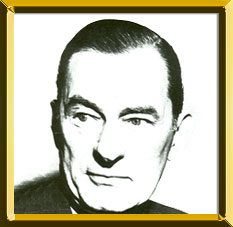
James J. (Jimmy) Walker, the famous New York City mayor of the Roaring Twenties, was a career politician who made an invaluable contribution to the development of boxing. In his days as minority leader of the New York State Senate, he sponsored the Walker Law, which legalized boxing in the state and provided a model for its regulation by state athletic commissions.
Walker was a native New Yorker, born in 1881. He trained as a lawyer and was elected to the state Assembly in 1909. In 1915, he was elected to the state Senate, eventually becoming minority leader in 1921. He introduced the bill that would legalize boxing in 1920. In 1925, Walker was elected mayor of New York. He was a popular leader even though he had come to symbolize the free-wheeling life of speakeasies and Tammany Hall improprieties. Shortly after his reelection in 1929, rumors of corruption surfaced, and Walker was investigated by a committee of the state legislature. Evidence of graft was uncovered and, in 1932, Governor Franklin D. Roosevelt summoned Walker to Albany to explain his actions. Shortly thereafter, Walker resigned as mayor.
Walker had a great fondness for boxing and was often seen at ringside at major New York fights. He was a regularly featured speaker at the Boxing Writers Association annual dinners and, in 1940, received that organization's award for long and meritorious service to boxing. The award was renamed the James J. Walker Memorial Award after Walker's death in 1946. The writers group had earlier honored Walker with its Edward J. Neil Memorial Award for outstanding contributions to boxing.
Walker's life story was made into a movie starring former professional boxer and legendary comedian, Bob Hope.
* * *
Excerpted with permission from 'The Boxing Register' by James B. Roberts and Alexander G. Skutt, copyright © 1999 by McBooks Press. All rights reserved.
Born: 1881
Died: 1946
Induction: 1992
James J. Walker
